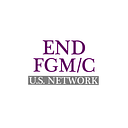Washington State makes progress to End FGM/C
Washington State is one of the remaining ten U.S. states without any law that addresses and prohibits female genial mutilation/cutting (FGM/C). FGM/C is a human rights violation and form of child abuse and gender-based violence that involves removal of the female genitalia for non-medical purposes.
This gap in state protection has left children in Washington vulnerable to this harmful practice. In fact, an estimated 25,000 women and girls in Washington are living with or at risk of undergoing FGM/C. The Seattle-Tacoma-Bellevue metro area is considered the 5th highest metro area in the U.S. in terms of the size of the FGM/C-affected community. In 2019, a change.org petition that gained 170,000+ signatures was started to address this lack of protection for children.
“Washington state is #18 for gender equality by US News and World Report. Gender Equality should be a priority in Washington state. Social, political, and economic equality and equity is limited when we don’t have the full participation of all of our women and girls. Harmful customs or social norms that contribute to GBV (gender-based violence) including FGM/C in addition to costing lifelong pain and suffering can hold women, girls, and others who have undergone FGM/C back from full participation.” ~ Absa Samba
The Washington Coalition to End FGM/C was created to educate people in the state about the need for policy solutions to address FGM/C. The coalition is made up of survivors, community organizations, legislators, advocates, and others.
On March 9th the Washington Coalition to End FGM/C held a webinar in partnership with Sahiyo, The U.S. End FGM/C Network, Children’s Alliance, and Mother Africa to help shed light on how FGM/C impacts those living in Washington state, and to discuss policy level solutions, community-based programs, and education initiatives needed to protect women, girls, and others from undergoing this harmful practice.
Speakers included:
- Absa Samba, a student, activist, and survivor of FGM/C who helped found the Coalition and made contact with Washington Senators to sponsor a bill against FGM/C.
- Bettina Shell Duncan, a Professor of Anthropology at the University of Washington in Seattle who has done extensive research on FGM/C,
- Stephan Blanford, the Executive Director of Children’s Alliance,
- Muna Osman, Doctorate Prepared Nurse Practitioner, founder of holistic family care clinic, a co-founder of mama amaan research team, and survivor,
- Senator Karen Keiser (D-WA 33), sponsor of SB 5453, a bill that will make FGM/C illegal in Washington State.
Speakers helped to shed light on the issue of FGM/C by discussing what it was, who it impacts, and most importantly, that it does affect residents of Washington. The vital need for policy to end FGM/C amongst future generations of children was also discussed.
“The pressure to undergo FGM can be intense for girls and their families…the solution is to coordinate change in families and communities so that people are not acting in isolation. If everybody can agree to abandon the practice, the negative sanctions can be lifted…When other members of the community are given the power of law to strengthen their position, the law becomes a powerful tool for enhancing their power to persuade others that this is a practice that’s no longer relevant in this context and in this time.” ~ Bettina Shell Duncan, panelist
The coalition has supported policy work by working on the passage of Washington Senate Bill 5453. This bill, informed by the Washington Coalition to End FGM/C, has been championed by state Senator Karen Keiser and, if passed, will prohibit FGM/C on minors, creates a civil cause of action for survivors of FGM/C, and establishes an education program to prevent FGM/C in Washington.
“This education component of this bill is huge for our [Somali] community. I think this bill coming from us, for us, by us, to help the community, I think it is a beautiful thing. I am confident that the community will accept it.” ~ Muna Osman, panelist
During the event, audience members were also called to action to support the bill by signing onto an action alert. As of March 29, Senate Bill 5453 has passed the Washington state Senate unanimously and is making its way through the House of Representatives.
Similar legislation was introduced in the Washington legislature in 2019 but it did not pass; a key difference between the two campaigns is that this year in 2023, the bill is backed by a strong coalition of directly-impacted survivors, advocates, community members, health practitioners, human rights activists, policymakers, faith based groups, and other allies. Whereas in 2019, there was a lack of inclusion of FGC impacted communities who lived in Washington in the crafting of the legislation. The unanimous support from legislators this year is a strong indication that Washington state will become the 41st state to pass a law to prohibit and prevent FGM/C.
